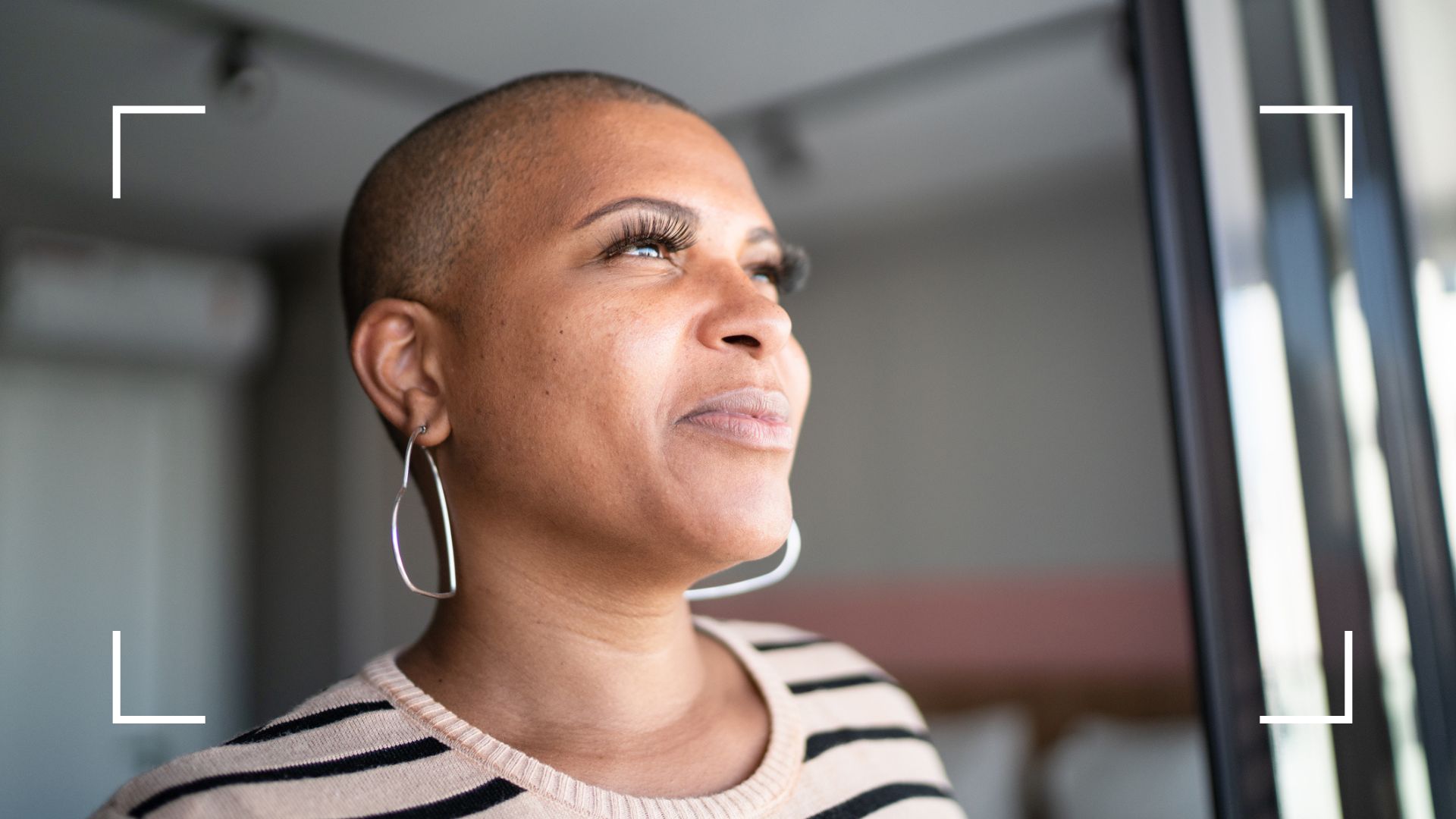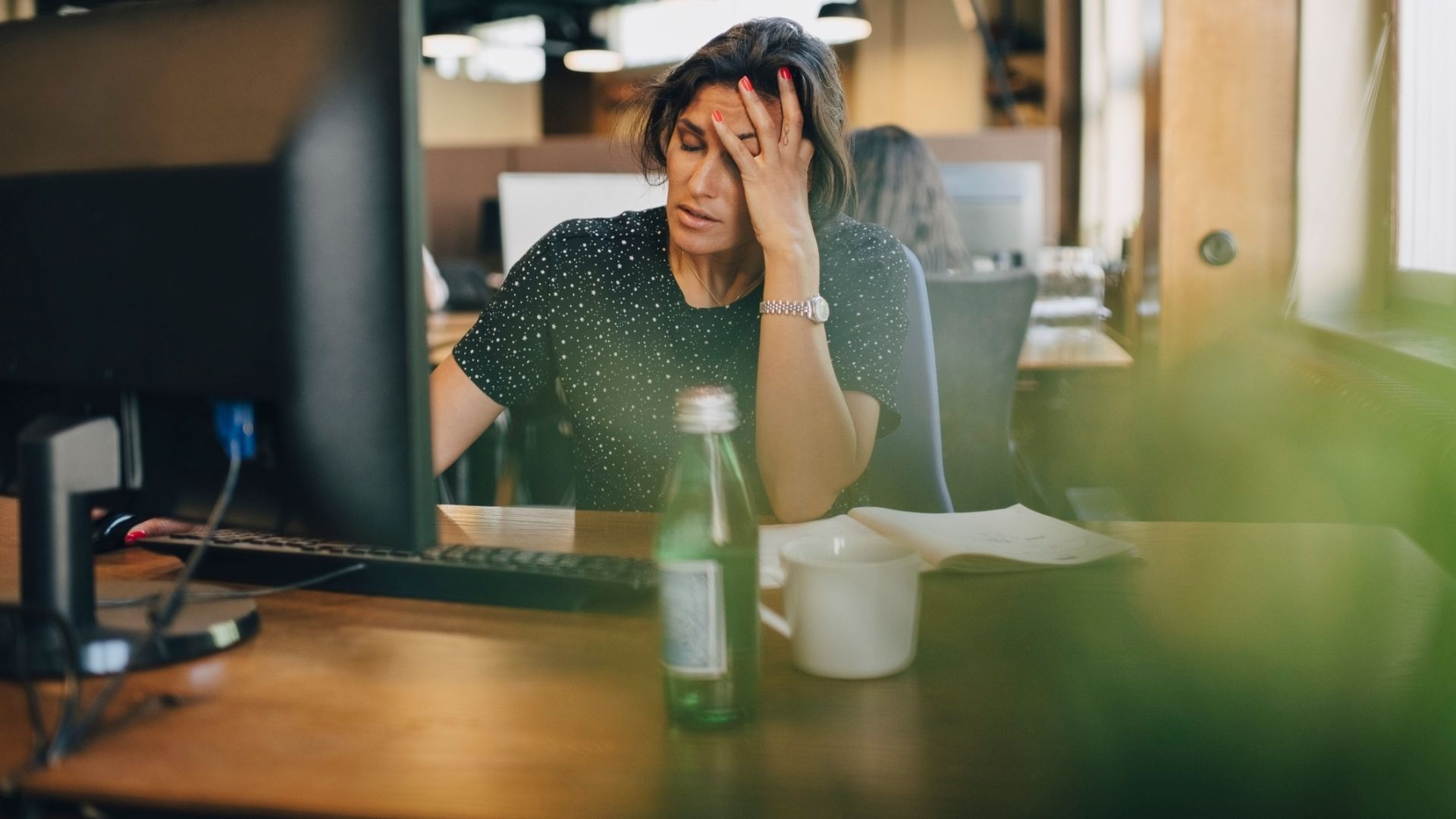Menopause and anxiety: Do your hormones impact your mental health?
The link between the menopause and anxiety is real—here, our experts explain how our hormones can impact our mental health


The link between menopause and anxiety isn't widely known, even though our hormones have a huge impact on our mental health. Most women report feelings of anxiety during menopause and perimenopause, but in comparison to symptoms such as hot flushes, weight gain, and fatigue, menopausal mental health changes don’t get nearly as much airtime.
Going through menopause can be a challenging time, but knowing that fluctuations in mental health are common and nothing to be ashamed of can help you find support when you need it and overcome particularly challenging moments.
Here, menopause health experts help you understand whether menopause symptoms can cause anxiety, including why menopause can cause anxiety, how postmenopausal changes can impact your mental health, and how to find support when you need it.
Menopause and anxiety—what's the link?
Going through the stages of menopause creates a change in hormone levels, which influences how the brain works. Estrogen and progesterone are typically balanced with each other pre-menopause, however, during perimenopause, the ovaries become less responsive to control hormones FSH and LH, which are released by the pituitary gland and regulate ovarian function. As a result, there are lower levels of progesterone and estrogen, along with higher levels of control hormones flowing around the body.
While this is perfectly normal and a natural part of moving through menopause, GP and menopause specialist Dr Louise Newson explains that "many women find that when levels of estrogen and progesterone are low, symptoms of anxiety occur."
Anxiety can be brought on by other psychological symptoms of menopause as well, she says. “These range from low mood, reduced energy, intrusive thoughts, feelings of reduced self-worth, and low self-esteem. Changes in lifestyle, such as children moving out of the home, can also make many women feel overwhelmed and unbalanced during their menopausal and postmenopausal years.”
If this is the first time that you've experienced feeling anxious, you're not alone. Research from the University of Pittsburgh showed that women who experienced low levels of anxiety prior to menopause were more likely to report high-anxiety symptoms in early or late perimenopause, or during and after menopause.
Sign up to our free daily email for the latest royal and entertainment news, interesting opinion, expert advice on styling and beauty trends, and no-nonsense guides to the health and wellness questions you want answered.
Can menopause cause panic attacks?
“Lots of women going through perimenopause and menopause report experiencing panic attacks, which are connected to the changing levels of hormones such as estrogen and progesterone,” says Dr Samantha Wild, GP and women’s health lead at Bupa Health Clinics.
“Symptoms of anxiety, which are linked to panic attacks, can be worse if you’re not sleeping enough because of night sweats, something that often occurs during menopause).”

7 ways that menopause affects mental health
If you’re in your 40s and 50s, and you suspect that menopause is impacting your mental health, there is help and support out there for you.
“It’s important that women receive the right help, support, and treatment if their mental health symptoms are related to their low hormone levels,” says Dr Newson. “Talking to a healthcare professional about the potential diagnosis of perimenopause and menopause is crucial. Antidepressants often work better in women who take hormone replacement therapy (HRT) and taking HRT can also improve many of the psychological symptoms of menopause, regardless of antidepressants.”
1. Anxiety
While many of us know that hot flushes and menopausal weight gain are typical consequences of menopause, recognizing anxiety as another key symptom is important.
“Menopause and anxiety occur when your body's fight or flight defense works continuously,” says menopause specialist nurse Kathy Abernethy. “It causes an imbalance in the way the body processes environmental and sensory stimuli. When you start menopause, your estrogen levels decline and fluctuate. Your body also produces less progesterone. Both these hormones influence the production of a neurotransmitter called serotonin, which is a mood-regulating transmitter. Alongside these emotional changes, coping with physical symptoms of the menopause can leave women feeling worn out, frustrated, and, of course, anxious.”
2. Depression
According to research published in the British Medical Journal, depression can increase in women during early to late menopause. The reason or this? Fluctuating levels of estrogen and progesterone, which have an enormous impact on our mental wellbeing.
“Falling estrogen and progesterone levels often trigger mood swings and for some women, depression,” says hormone expert Dr Martin Kinsella. “When women go through sudden hormonal changes such as the ones that happen during the menopause, then they’re at higher risk of depression. Again, this is down to the fact that hormones and serotonin are so closely linked, so when hormone levels drop so do serotonin levels, resulting in feelings of sadness and depression.”
3. Stress
Stress isn’t uncommon amongst women during midlife, but it may worsen around the menopause, and this can lead to feelings of anxiety.
“Low estrogen levels can cause women to experience several symptoms during menopause, such as hot flushes, poor sleep and various causes of vaginal dryness, which can contribute to feelings of stress,” says GP Dr Angela Rai. “Progesterone is another important hormone in the monthly cycle as it has a calming effect. A drop in progesterone can impact our body’s ability to reduce stress.”
4. Mood swings
“One of the most common problems associated with menopause is the rapid mood swings due to fluctuating estrogen levels. This is often characterized by moving from sadness to happiness to anger and back again within just a few hours,” says health psychologist Joanna Konstantopoulou. “These fluctuating emotions can eventually take their toll on our mental health.”
5. Lack of motivation
Feelings of despondency and a lack of motivation often affect women during menopause.
“When hormones are balanced, estrogen promotes the activity of serotonin and dopamine in the brain, which encourages emotions of happiness and motivation,” says explains Dr Marion Gluck, a hormone specialist. As menopause causes a hormone imbalance in the body, levels of estrogen dip. This has a knock-on effect on our happiness hormones, dopamine and serotonin. Some lifestyle factors can also make this worse, including combining alcohol and menopause symptoms.
“The presence of testosterone in the body at optimal levels also helps to promote dopamine activity,” Gluck adds. As testosterone is partially produced in the ovaries as well, this naturally also declines during menopause.
6. Irritability
“As progesterone levels fall when the symptoms of perimenopause start, estrogen can become the dominant hormone, which can lead to irritability and depression,” says Dr Martin Kinsella.
“This is because the hormones that control your menstrual cycle also influence serotonin, which is the chemical in the brain that promotes feelings of happiness. So when these hormone levels drop, serotonin levels do too, contributing to increased irritability and unhappiness.”
7. Brain fog
Brain fog is a term used to describe poor concentration, feeling confused, forgetfulness, and difficulty focusing. It is another common, but less well-known symptom of menopause.
“Estrogen and testosterone play an important role in memory and cognition,” says Dr Rai. “When the levels of these hormones drop during menopause and perimenopause, it can lead to symptoms such as poor memory, difficulty finding words, staying focused, and a feeling that the brain is fuzzy or cloudy.”
How to support your mental health during menopause
There are some things you can do to help support your mental health and ease symptoms when you’re going through menopause. These include:
- Seek support: If you’re struggling with mental health, speak to your GP, who may recommend treatment for perimenopause or menopause symptoms. HRT, for example, comes in patches, tablets, and gels and helps to stop hormone levels from fluctuating, reducing symptoms of anxiety and depression. However, it's not suitable for everyone.
- Lifestyle changes: While you may need medical intervention to reduce anxiety during menopause, it's worth considering changing other factors that could also be contributing to anxiety. Try out mindful drinking and avoid caffeine if you find either alcohol or coffee makes you anxious, affects your sleep, or triggers your hot flushes, for example.
- Talk: Chat to your friends and family about menopause, to help them understand what you’re going through. Menopause support groups are also growing in popularity.
- Reach out to charities such as The Menopause Charity, Menopause Support and Menopause And Me, who can offer advice and guidance if you’re struggling during the menopause.
With five years of experience working across print and digital publications, Stacey is a journalist who specializes in writing about the latest developments in health and wellbeing. She has also previously written for Women’s Health, Get The Gloss, Fit & Well, Stylist, and Natural Health magazine, covering current health trends and interviewing leading figures in the wellness space.
When she’s not talking to health experts, you can probably find her hiking somewhere in the Welsh countryside or near the coast. Her favorite two ways to switch off are a Pilates class and a glass of wine with a home-cooked meal.
